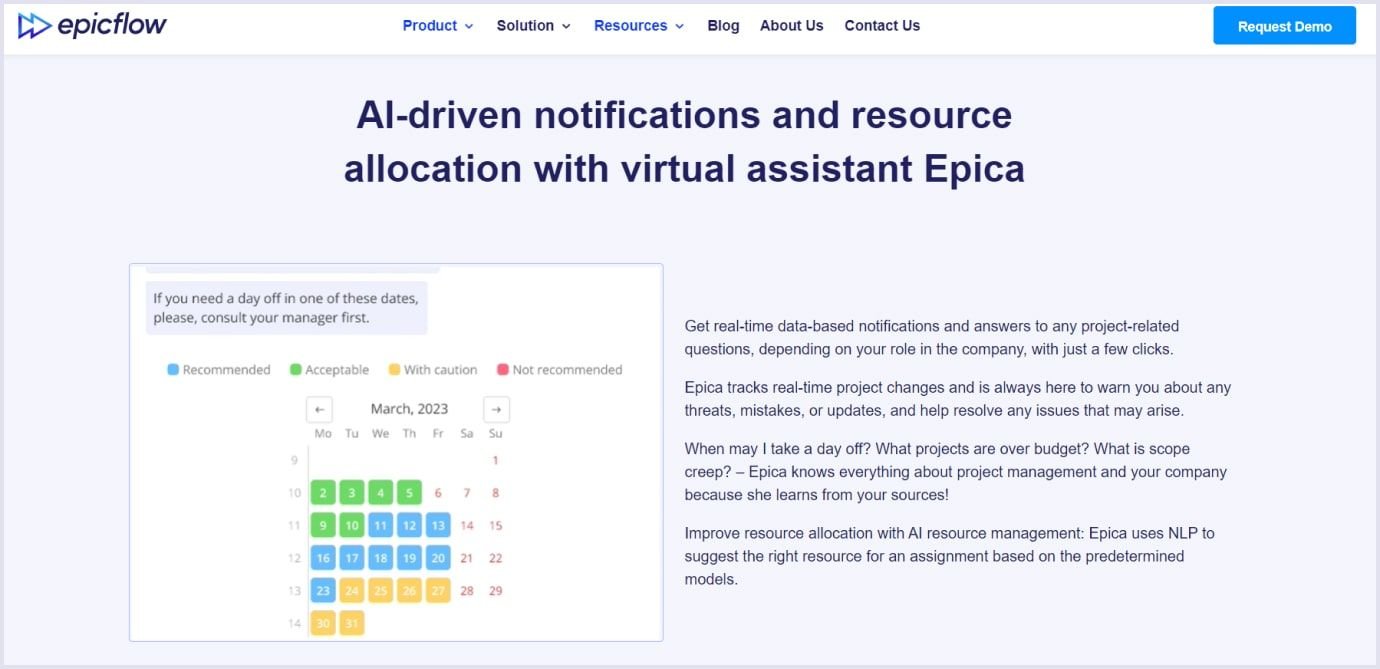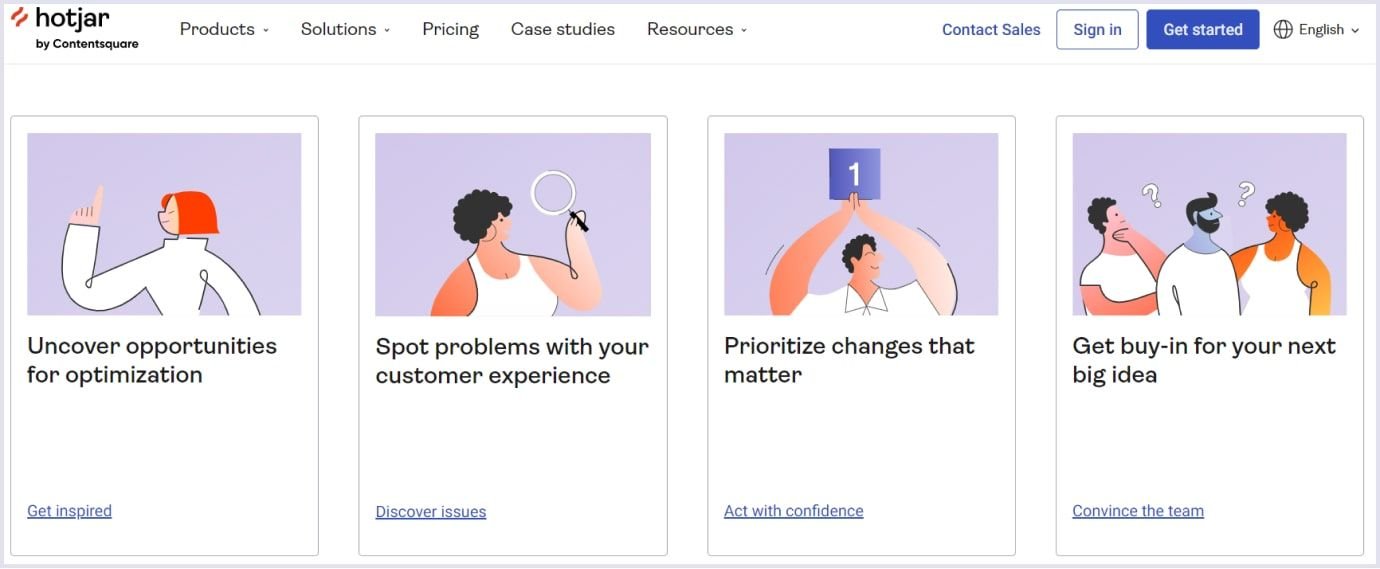Software as a service, or SaaS, is a cloud service operating online. This type of software is in the cloud so you can use it via an internet connection without the need to install it on your device. This SaaS helpfulness is even better when you implement artificial intelligence.
AI in SaaS helps you address common customer issues, observe what is valuable in your SaaS to users, get analytics, and more. By adding AI when building your SaaS product, your team saves valuable time and can provide better service for higher customer engagement.
In this post, we cover how AI benefits SaaS platforms and what are several examples of SaaS companies that implemented AI in their products. Let’s look at them in more detail.
The role of AI in SaaS applications
As in marketplaces and other digital solutions, AI in SaaS provides many benefits for customers and business owners. The main improvement points embrace customer support, analytics, prediction, maintenance optimization, personalization, and more. That is why investments in AI doubled in 2023 compared to 2022.
SaaS businesses help their customers resolve questions, find better ways to achieve their goals and optimize their costs for SaaS. With dynamic data analysis, an AI SaaS company maintains its business processes. SaaS teams get well-organized workflow, data analytics, and an understanding of trends and patterns in customer behavior.
With SaaS artificial intelligence, businesses can improve their services based on AI-powered analytics. Now that companies implement AI, they know what features are in use and what should be improved. Thanks to AI’s ability to predict, businesses also get timely resource allocation. Thus, the SaaS solution’s work is stable even at times of high business loads or after upgrades.
As a SaaS development company, we discuss the benefits of AI SaaS in greater detail below in this post.
Enhancing performance with AI
Automating routine tasks
Your SaaS team deals with a range of repetitive tasks, such as scheduling meetings, managing emails, generating reports, and more. AI helps coordinate these tasks based on participants’ calendars by sending reminders and rescheduling if necessary.
To improve your SaaS team’s workflow, AI collects data from various sources. AI cleans and corrects data, so you get ready material for analysis. This data helps you pivot your business through insights as you need.
Another AI’s benefit is streamlining your SaaS team’s workflow. Thus, your artificial intelligence SaaS team can track leads, score them depending on conversion likelihood, and create personalized follow-up emails or calls.
Using AI for efficient resource management
As AI can analyze SaaS usage patterns, it helps allocate resources as needed. For example, AI helps forecast peak times and provides the relevant server space when needed. Moreover, AI balances system usage when specific resources are not used to distribute the load.
These optimizations ensure the scalability of your SaaS solution. You don’t have to worry about your SaaS performance at high loads, and you can safely expand your user base and services. AI can also help you predict maintenance needs. It collects data that help identify problematic spots and prevent downtime or hindered performance.
For example, Epicflow, an AI-powered SaaS platform, helps project management teams plan their activities in advance. The solution helps spot project issues, analyze performance, address poor planning, and more.

AI for real-time analysis of large volumes of data
SaaS solutions process large chunks of data that AI helps analyze for further improvements. Customer reviews and support tickets holding data auto-categorized with natural language processing (NLP) will provide data on the features that are mainly used. Based on this data, you can adjust features, improve them, and add new ones. Thus, you get engaging AI SaaS ideas.
Moreover, with specific data, developers can create dashboards in AI SaaS that provide insights into key performance indicators. These AI-powered analytics programs help you automatically generate summaries of complex data. So you can get the complete picture of your SaaS product’s performance and verify your AI SaaS ideas.
Read also: The Future of SaaS: Top SaaS App Development Trends for 2024
Improving user experience with AI
AI for personalizing content and services
When you interact with a SaaS product, AI analyzes those interactions to highlight content that best fits your interests. Recognizing patterns, AI can provide you with recommendations and features according to what similar users value.
Another option in personalized SaaS is providing a custom user interface. AI collects data on user preferences and can customize this part of AI SaaS design. Preferred layouts, color schemes, and navigation flow come from AI’s analysis of usage patterns.
Moreover, AI helps you predict what actions a user might take. So, AI provides users with possible features or customization options.

Chatbots and virtual assistants
These technologies utilize language interpretation models to give instant answers to common questions from users. They help improve user experience with your SaaS in the following ways:
- Swift customer support 24/7. When your customer does not understand how to use a particular feature in your SaaS, chatbot or virtual assistant help with that. Regardless of time zone differences virtual help addressess common questions quickly.
- Personalized assistance. As chatbots can analyze the key points of user interaction with your SaaS, they learn to provide customized service. Based on the user’s actions, virtual assistants suggest relevant features or content.
- Seamless onboarding and continuous training. Chatbots and virtual assistants walk you through the initial setup and offer feature tutorials. Whenever you face an issue, virtual assistants help you understand the features used and configure your settings if necessary. SaaS generative AI also provides tips and guidance on new features and updates.
- Device synchronization. If you start chat with a chatbot or virtual assistant on your mobile, you can continue the same converstaion on your another device. Different channels connected to various databases and support systems provide your AI SaaS customers with consistent support through various devices.
AI to predict user behavior and gain analytics
Thanks to the ability to recognize patterns, AI in SaaS helps track what features your customer has used. Based on this data, your SaaS system provides handy suggestions and feature tutorials. Thus, you improve user engagement on your SaaS platform.
AI in SaaS helps you track user interactions with your app. Analytics on login activities and feature usage provide insights into your customers’ preferences and drop-offs. This will help you target your SaaS marketing strategy to offer specific features and send relevant messages on features and upgrades. Such approach helps your improve retention rate.
For example, Hotjar, as an AI B2B SaaS, provides you with reports on customer engagement. This AI-powered SaaS tool analyzes heatmaps and user feedback and helps you get analytics by generating customer surveys. For this, you can type your goal, like finding troubles while using a specific feature. Hotjar will give you a report and recommendations on addressing an issue.

Implementing AI in SaaS: challenges and solutions
With all the benefits of AI in SaaS, there are crucial considerations that you should take into account when implementing AI. Here is the list of such aspects and how you can address them for successful improvements in your SaaS.
Data quality and availability
Data of SaaS companies is often siloed, inconsistent, and incomplete. It also can be scattered between many sources and platforms without standardized formats.
The solution for this issue is data cleaning and normalization. Data architecture should be unified and follow standardized patterns. Data quality also should be preserved. You can achieve that through regular audits and updates. This helps you prove your SaaS AI ideas.
Integration with existing systems
Adding AI to your SaaS solution is beneficial but poses technical challenges. Many SaaS apps have complex architectures that are not accommodated to AI. Thus, developers need to modify the AI SaaS platform with hard work to prevent compatibility issues.
A possible solution to this challenge requires effective integration. For this, developers must have deep understanding of SaaS codebase and AI technologies. So, you need a clear integration strategy that prevents discrepancies in compatibility of the existing and new technologies.
High costs and resource requirements
Implementing SaaS AI tools requires significant investments, which is a challenge for small SaaS businesses on a tight budget. You need to invest in powerful computing resources and data storage solutions. Highly skilled AI specialists may also be costly in a competitive job market.
To manage your costs, choose cloud-based AI services. For example, Amazon Web Services (AWS), Azure, and Google Cloud provide versatile and cost-effective solutions and tools. You can choose whichever you want to handle your business needs. It is also helpful to find SaaS providers on a project basis. So, you pay for AI cloud services as you need.
Ethical and regulatory challenges
Implementing AI should carefully deal with historical biases in data that may cause ethical and regulatory breaches. While training AI for SaaS, you should check that relevant data are objective and do not discriminate against any demographic groups. For example, this could be the case in training data for an HR solution.
Navigating such issues includes regular audits of AI models. The relevant outcomes will help you ensure that the AI data are fair and ethical. Also, check for evolving standards as they help you maintain objectivity and privacy while using AI models’ data.
Examples of successful AI integration in SaaS
As you now know the benefits and challenges of AI in SaaS, let’s look at real-life examples to inspire you. Below, we discuss the prominent companies and how they won from AI implementation in their products.
Salesforce. This leading customer relationship management system integrated its Einstein Copilot service. It has transformed experiences for sellers, agents, and marketers. Einstein Copilot uses generative AI for SaaS and creates context for prompts and makes them relevant to your specific business. With this AI tool, Salesforce streamlines processes, personalizes services, and keeps data relevant for better business performance.
Check the video below on how Einstein Copilot assistant works for managing conversations and taking action.
Zendesk. Zendesk’s AI tool aims to elevate customer support to a new level. It helps businesses process many customer queries even with high demand. Moreover, it provides the necessary data quickly. So, agents get the context for each conversation as it is needed. Zendesk’s AI tool increased customer satisfaction by 95% and decreased chat volume by 80%.
HubSpot. As a marketing software product, HubSpot targets marketers with SaaS AI tools to help them build versatile strategies. Thanks to Hubspot’s AI, you can generate simple websites and content tailored to your brand identity. Moreover, you can brainstorm ideas, improve search engine optimization, produce content for your social media, and more with this AI B2B SaaS. Hubspot’s AI-powered products save business costs, enhance custom care, increase website performance, and help thrive in many other ways.

Takeaways
AI brings many benefits to SaaS. Customers enjoy fast and personalized service, and business owners win from relevant customer engagement. With AI, you can manage your solution, integrate timely tweaks, and support your customers at all times. Even if you encounter challenges with AI implementation, there are solutions that will help you gain the most out of AI and optimize your costs.
If you have AI SaaS ideas or plan to build one with AI integration, we are eager to help. Contact us, and our specialists will gladly discuss your project details and find the best way to help you with AI development services.
